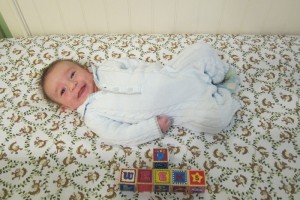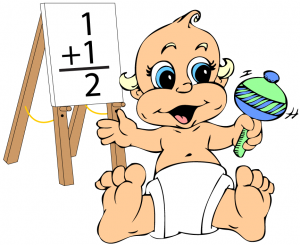I loved the cover story of the January 24th issue of The Economist so much I even took notes. "America's new aristocracy: Education and the inheritance of privilege" is spot on in so many ways.
 As the leader says, "Today's rich increasingly pass on to their children an asset that cannot be frittered away in a few nights at a casino. It is more useful than wealth, and invulnerable to inheritance tax. It is brains." My children are certainly the beneficiaries (well, I hope) of this assortative mating. But I appreciated that the article also explains that it's not just that these children of the wealthier are resting on their laurels: "Compared to those of days past it is by and large more talented, better schooled, harder working (and more fabulously renumerated) and more diligent in its parental duties. It is not a place where one easily gets by on birth or connections alone. At the same time it is widely seen as increasingly hard to get into." Kids work hard to deserve their inherited status in the meritoracy, but that doesn't make it any easier to get into. Of course, as I know from my PLAYING TO WIN research, it's not not schooling but also after-schooling that matters. And these days it's not just a meritocracy but also a testocracy.
As the leader says, "Today's rich increasingly pass on to their children an asset that cannot be frittered away in a few nights at a casino. It is more useful than wealth, and invulnerable to inheritance tax. It is brains." My children are certainly the beneficiaries (well, I hope) of this assortative mating. But I appreciated that the article also explains that it's not just that these children of the wealthier are resting on their laurels: "Compared to those of days past it is by and large more talented, better schooled, harder working (and more fabulously renumerated) and more diligent in its parental duties. It is not a place where one easily gets by on birth or connections alone. At the same time it is widely seen as increasingly hard to get into." Kids work hard to deserve their inherited status in the meritoracy, but that doesn't make it any easier to get into. Of course, as I know from my PLAYING TO WIN research, it's not not schooling but also after-schooling that matters. And these days it's not just a meritocracy but also a testocracy.
Enter another American spin on a British import: Child Genius. This new Lifetime competitive reality show features 15 kids and their families as they compete to win $100,000 and the title of "child genius." The show manages to combine pint-sized stars with big brains and often big personalities with some compelling (and appalling) parents, along with some smart expert commentary. The two factual competitions each week (which mainly rely on a child's ability to memorize in categories like American presidents, zoology, vocabulary, etc. but also math and logic & reasoning) are inherently edge-of-your-seat watching. The good editing adds another dimension, as does the unabashed goal of winning that often outstrips any concern about cameras.
Obviously most of these kids are the progeny of smart parents; one girl, eliminated in the first week, reveals her IQ is higher than her father's already high number. The show is a rainbow ethnically and racially, and not surprisingly many of the kids are children of immigrants to the US (research on immigration in the US has shown that immigrants who make it here were already at the top in their birth countries so this is not surprising at all). But there is one big exception, Graham, whose family is a bit in awe of the intellect they produced in their small Midwestern town. Intensely religious Graham feels compelled to state he doesn't believe in the Big Bang before dominating the astronomy round (you could see the former NASA astronaut moderator shudder a bit). Graham is one of the reasons reality TV shows continue to thrive, as are Ryan and his domineering parents... especially his mom who hisses all the time she isn't a Tiger mom.
It is so clear that the more social kids who seem to have something more like a "normal" life-- regular school, peers their age, siblings-- are the happiest and most well-adjusted. The family dynamic is so significant here it is hard to overstate. You can see how some parents enjoy their kids (even when one girl reveals she got her brains from her dad, and then proceeds to correct her parents when they say she "self-taught herself" because what they said was redundant), support them, and try to raise them up as good human beings, while others see them as instruments to success. The goal is winning no matter the goal or cost. I can only imagine how crazy it is making some of them that Graham is excelling with so little practice and devotion (speaking of, I wonder if Graham has ever done, or will do, memory contests reciting Bible verses as it seems right up his alley).
In addition to my other interests I am fascinated that so many of these kids rely on a luck trope to explain their success in a phase of the competition, declaring they "got lucky" when they got first in a round or got a perfect score. Only once, thus far, has a negative luck trope been used when one boy got eliminated and his mom felt it was unfair (it wasn't, he gave the wrong answer, for the record, her name is SANDRA Day O'Connor). Of course luck does have to do with it for these kids, as they got lucky to be born into the families they did, per The Economist, but they also work unbelievably hard, studying every day and working to learn more almost every minute of every day. I'm curious to see how this ends and what becomes of these kids in the future. I suspect I will see more than a few in the Spelling or Geography Bees in the next few years (one contestant I recognized from lats year's Bee!), and then who knows...
But I'm sure even they would ask, as I did, why The Economist chose to feature Yale and not one of my alma maters, Princeton or Harvard?! ;)



